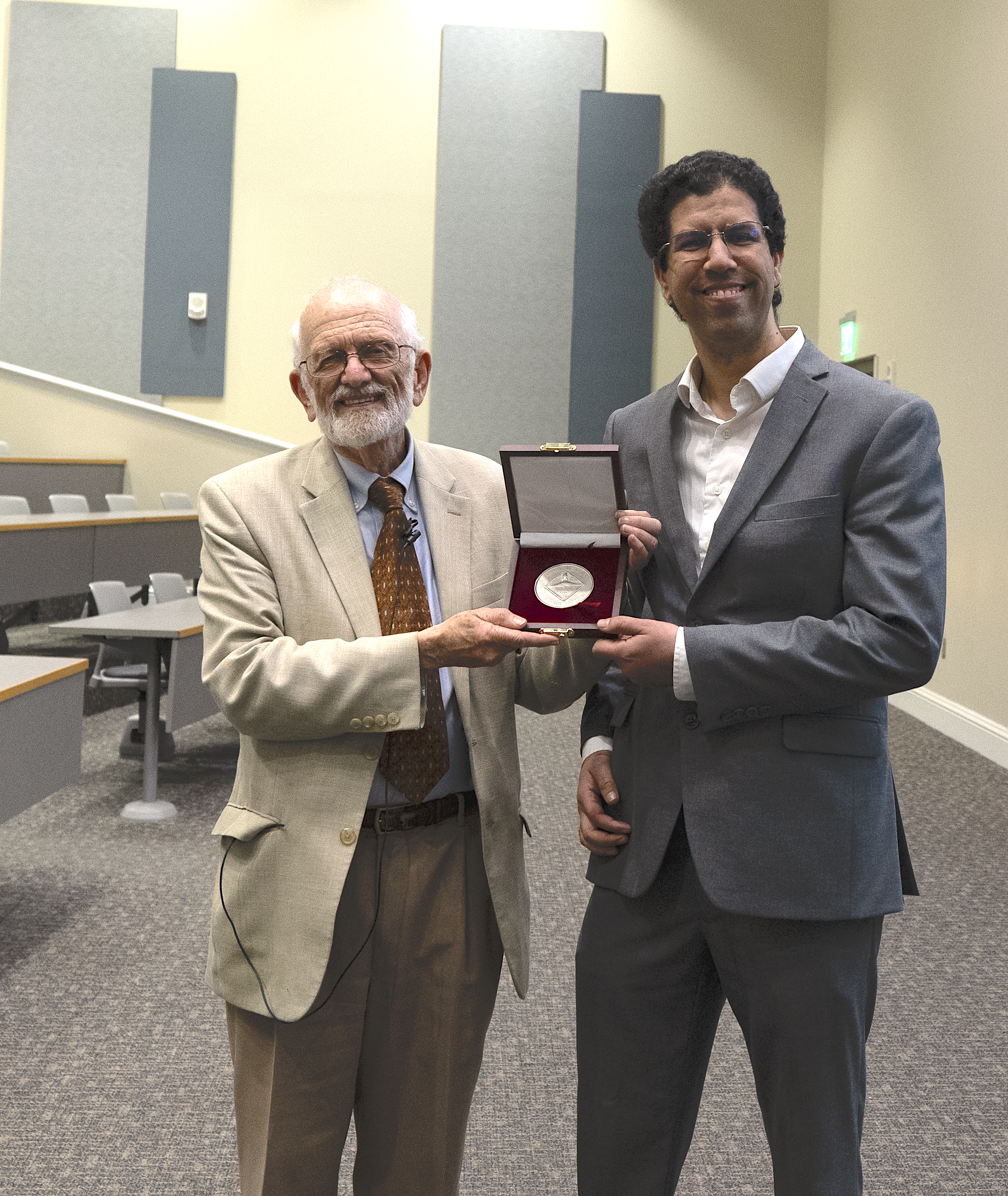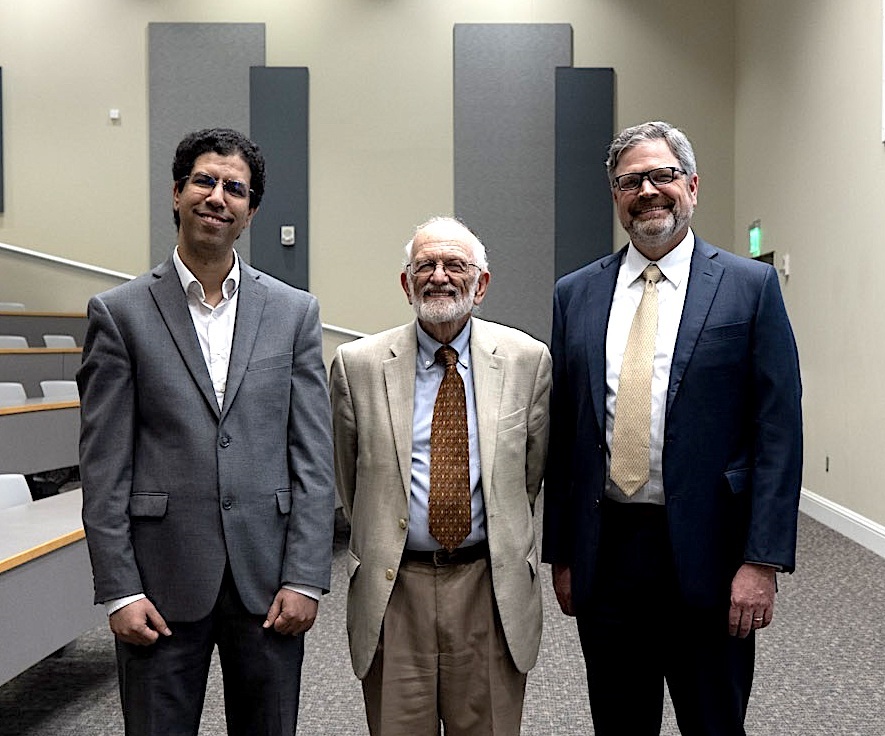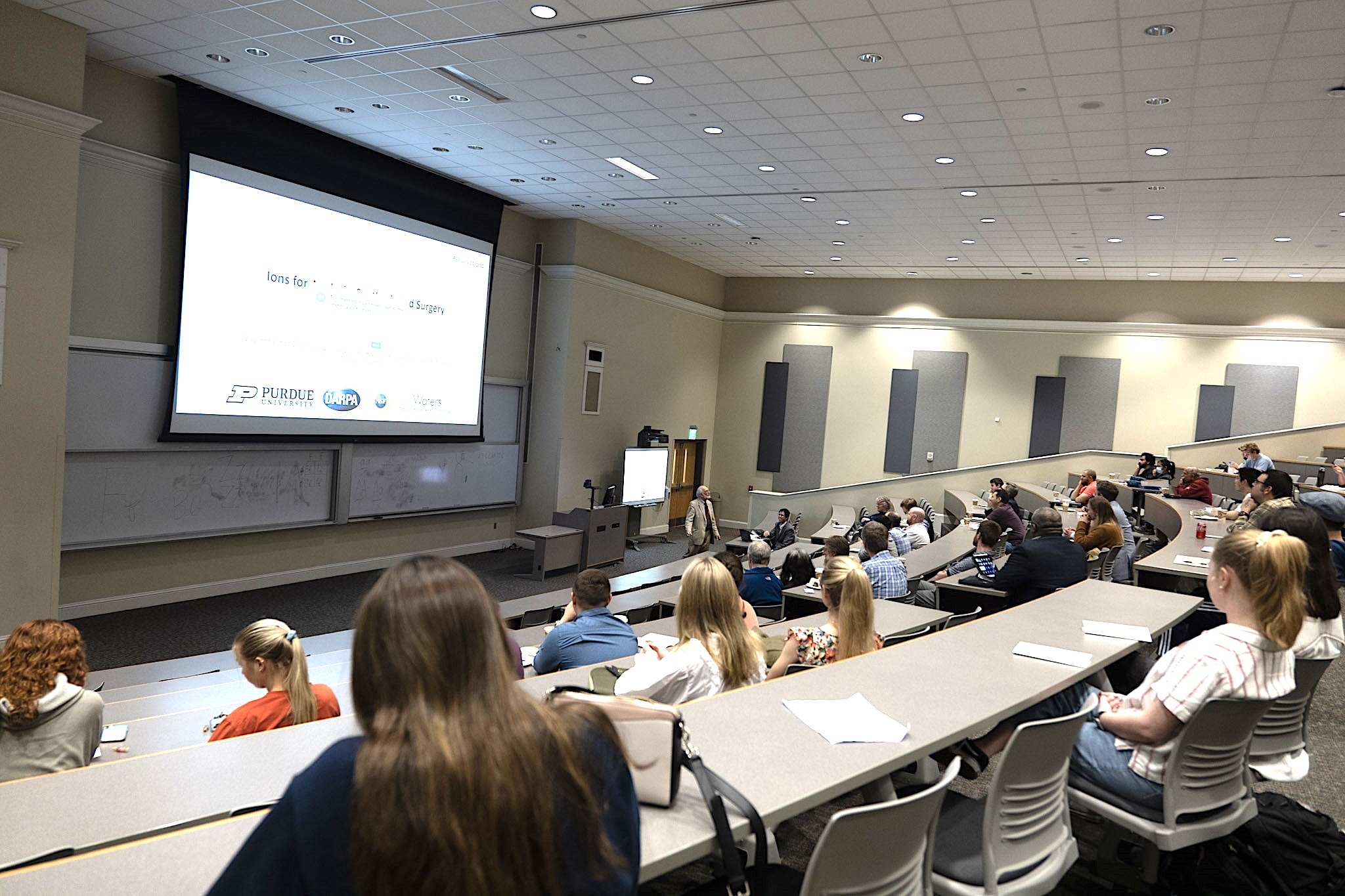COSAM News Articles 2022 March R. Graham Cooks from Purdue University, this year’s Kosolapoff Award Winner, speaks about mass spectrometry
R. Graham Cooks from Purdue University, this year’s Kosolapoff Award Winner, speaks about mass spectrometry
Graham Cooks, the Henry B. Hass Distinguished Professor in Analytical Chemistry from Purdue University, is the recipient of the Auburn University 36th Annual G. M. Kosolapoff Award. His research involves using mass spectrometry, the science and technology of ions. He leads experiments that provide immediate information during surgery in the operating room through direct tissue analysis.
“I am impressed with the graduate students here in the Department of Chemistry and Biochemistry,” said Cooks. “I have had engaging discussions with students from Nigeria, Brazil and China during my visit to Auburn.”
The annual lecture series was held on Wednesday, Feb. 23 in the Sciences Center Auditorium, and attended by faculty, staff, and graduate students.
“Nearly all Kosolapoff award winners, including Dr. Cooks, are National Academy of Sciences members, and it is not unusual for awardees to be honored as Nobel laureates later in their careers,” said Douglas Goodwin, chair of the Department of Chemistry and Biochemistry. “Students at Auburn University have a profound opportunity to hear directly from these scientists about their research and ask questions.”
Ahmed Hamid, an assistant professor in the department, introduced Cooks. From 2012 – 2014, he worked as a postdoctorate fellow in the lab with Cooks at Purdue.
Earlier in the month, a former graduate student Livia Eberlin from the same lab with Cooks at Purdue, spoke at the Schneller Frontiers Lecture.
“This award and lecture is one of the best things we do,” said Chris Easley, the C. Harry Knowles Professor in the department. “Approximately one-third of the winners have gone on to receive the Nobel Prize.”
Cooks talked on the topic of Ions for Analysis, Synthesis, and Surgery.
He discusses making ions, using ions for analysis and the “Make It” lab at Purdue for high throughput of automated, fast experiments at one sample per second.
His research has real-world application in the operating room.
“During surgery for a brain tumor, a patient has the least chemical diagnostics with no medical measurement available,” Cook added. “The measurements provided during surgery can provide valuable information.”
For 13 years, Cooks has been working to bring this data to the surgical process.
“We remove a small sample of the tumor, smear it and apply a solvent. Then, using a mass spectrometer, we can detect the percentage of tumor cells,” Cooks said.
It has been a challenge for Cooks to acquire data in the operating room. His work is part of an ongoing study at the Mayo Clinic, IDH Mutation Status Assessment.
“These awards are an opportunity to bring chemists from around the world to Auburn,” said Chris Goldsmith, a professor in the department.
The American Chemical Society, Auburn Section sponsors the award and lecture series.
Latest Headlines
-
07/09/2024
-
Summer Bridge Program celebrates 21 incoming Auburn students as they prepare for future STEM careers07/02/2024
-
07/02/2024
-
06/17/2024
-
06/07/2024



